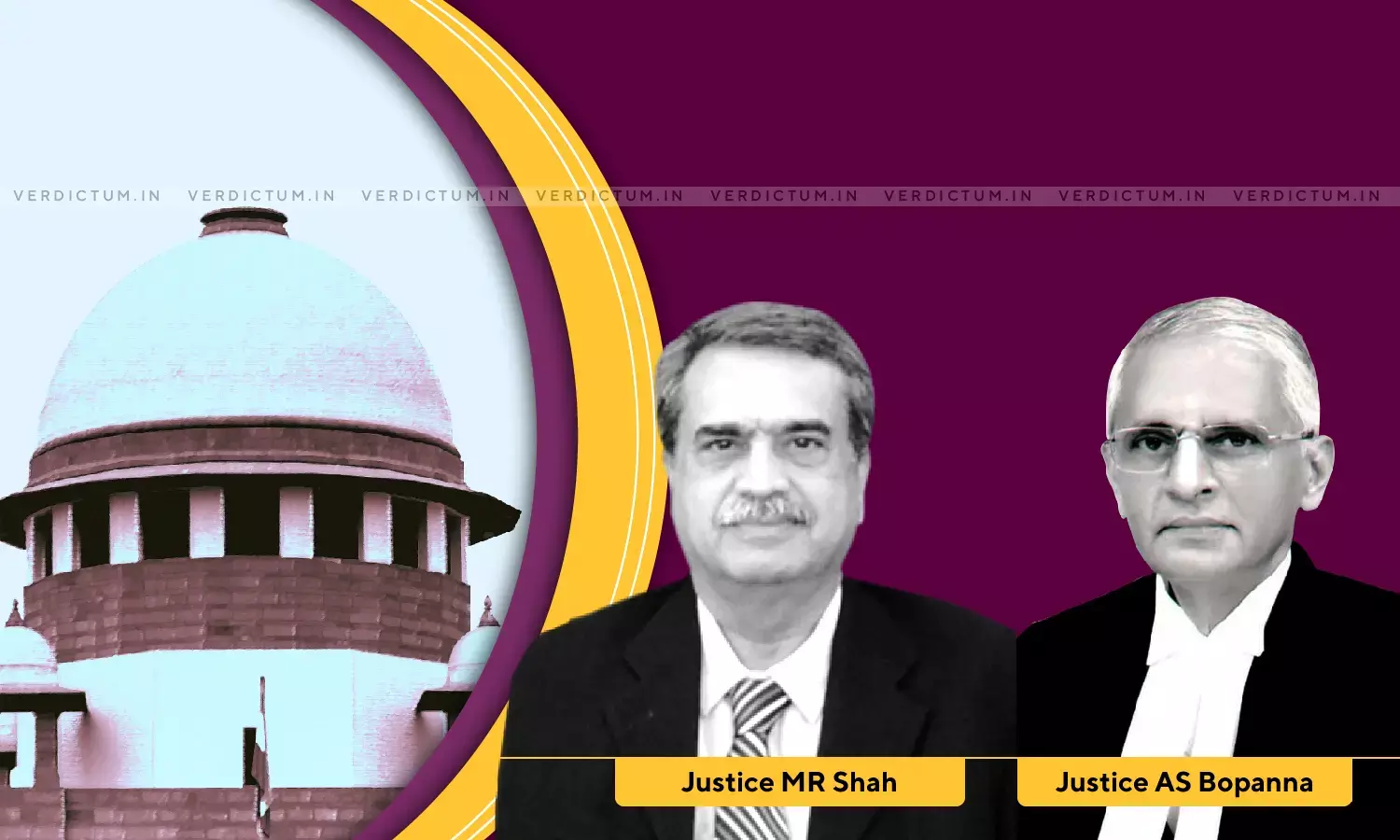Respondent In Proceeding Under Hindu Marriage Act Cannot Seek Relief Against Third Party As Counter Claim: Supreme Court
A two-judge Bench of Justice MR Shah and Justice AS Bopanna has held that the respondent in proceedings before Family Court under the Hindu Marriage Act cannot pray for reliefs by way of counter claim qua a third party. The Court held that, "Under the provisions of the Hindu Marriage Act, the relief of divorce, judicial separation etc. can be between the husband and the wife only and cannot extend to the third party".
The Court has also held that as per Order VI Rule 17 CPC, an application for amendment of pleadings can be allowed even after the commencement of trial for the purpose of determining the real questions in controversy between the parties, if some facts have come to the knowledge subsequently and subsequent to the commencement of trial.
An appeal was preferred against the judgment of Gujarat High Court at Ahmadabad which had dismissed the Writ Petition of the Appellant –Wife while allowing the Writ Petition filed by the Respondent-Husband.
In this case, the Respondent-Husband had sought dissolution of marriage on the ground of cruelty.
While the Appellant-Wife had alleged that the Respondent-Husband was cohabiting with another woman and introduced the said lady as his wife. Subsequently, according to the Appellant, she got to know that Respondent had entered into a second marriage with the said lady. Thereafter, the Appellant filed an application and sought amendment in her written statement by adding few paras and raising a counter claim seeking a declaration that the marriage of her husband with the said lady is void.
The Family Court allowed the application for adding paragraphs to her written statement but refused to allow the amendment to raise the counter claim. Both the Appellant and the Respondent filed Writ Petitions before the High Court challenging the order of the Family Court.
The Appellant before the Supreme Court contended that it was during the cross-examination of Respondent-Husband that she became aware of the fact that he had entered into a second marriage and also had a son from the wedlock.
It was further argued that the Appellant was justified in submitting an application for amendment of a written statement to plead the facts related to the second marriage. Also, the relief sought by way of a counter claim was permissible under section 23A of the Hindu Marriage Act. Hence, the application for amendment must be allowed in toto.
While the Respondent contended that the Appellant could only seek relief on the ground of cruelty, adultery, or desertion. Only those reliefs could be sought which are permissible under Sections 9 to 13 of the Hindu Marriage Act.
The Apex Court observed that the High Court had dismissed the application of the Appellant-Wife mainly relying upon the embargo under Rule VI Rule 17 and Order VIII Rule 6A CPC. The Court found that the Appellant-Wife gained knowledge of facts relating to the second marriage of the Husband only from cross-examination and hence the Appellant could seek amendment even after commencement of trial.
For seeking relief by way of counterclaim, the Court formulated the following issue for consideration–
Whether the appellant-wife could have amended the written statement to raise a counterclaim seeking declaration about the second marriage of her husband, in a divorce petition filed by the respondent-husband for dissolution of the marriage?
The Court opined that only those reliefs by way of counterclaim can be claimed which are covered under the ambit of Sections 9, 10, 11, 12, and 13.
"Therefore, by way of counter claim, the respondent in any proceedings for divorce or judicial separation or restitution of conjugal rights can pray for the relief by way of counter claim only those reliefs which can be prayed and/or granted under the Hindu Marriage Act, namely, the relief under Section 9 (Restitution of 25 conjugal rights); Section 10(judicial separation); Sections 11 & 12(declaration of marriage between the petitioner and the respondent void) and Section 13 (divorce)," the Court noted.
The Court held that the relief by way of a divorce, judicial separation, etc. can be between the husband and wife only and cannot extend to the third person. However, the Court observed that it will be open for the appellant to initiate independent proceedings by way of filing a substantive suit or any other remedy which may be available to the appellant under law for claiming the relief proposed to be sought by the counter claim.
In the light of these observations, the Court allowed the appeal in part and set aside and quashed the impugned judgment of the High Court to the extent that it did not permit the Appellant to amend for incorporating pleadings while upholding the decision refusing permission to raise the counter claim. The order of the Family Court was thus restored by the Court.




